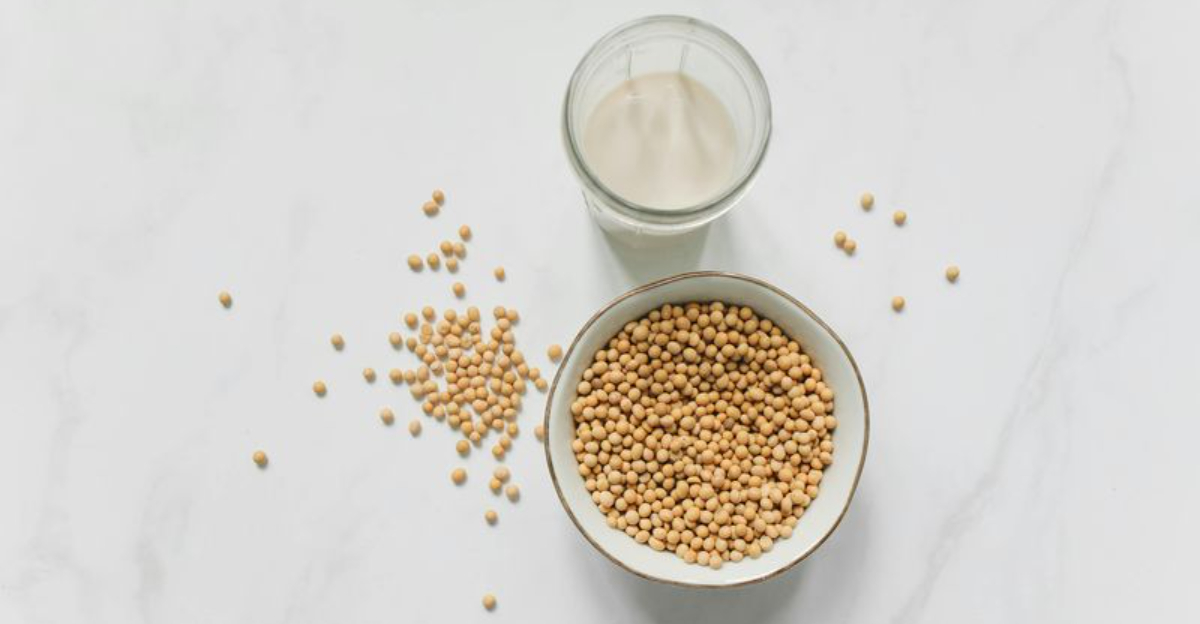When you think about omega-3 fatty acids, fish probably comes to mind first. But did you know that some plant-based foods actually pack more of these healthy fats than your average salmon fillet? Whether you’re vegetarian, allergic to seafood, or simply looking to mix up your diet, these surprising sources can help you meet your omega-3 needs without ever touching a fish.
1. Flaxseed
Ground flaxseed is an absolute powerhouse when it comes to omega-3s. Just one tablespoon delivers about 2,350 milligrams of ALA omega-3s, which crushes the amount you’d find in most fish servings. Your body can convert some of this ALA into the same types of omega-3s found in seafood.
The nutty flavor makes flaxseed incredibly versatile in your kitchen. Sprinkle ground flaxseed on yogurt, blend it into smoothies, or mix it into pancake batter for an easy nutritional boost.
Remember to buy ground flaxseed or grind whole seeds yourself, because your digestive system can’t break down whole flaxseeds properly. Store it in your refrigerator to keep the oils fresh and prevent them from going rancid quickly.
2. Chia Seeds
These tiny seeds were treasured by ancient Aztec warriors for good reason. A single ounce of chia seeds contains roughly 5,000 milligrams of omega-3 fatty acids, making them one of the richest plant sources available today.
What makes chia seeds particularly special is their ability to absorb liquid and form a gel-like consistency. This unique property makes them perfect for creating puddings, thickening smoothies, or even replacing eggs in baking recipes for a vegan alternative.
Unlike flaxseeds, chia seeds don’t need grinding to release their nutritional benefits. Simply add them whole to your favorite foods and watch them work their magic while delivering essential omega-3s to your diet effortlessly.
3. Walnuts
Crack open a walnut and you’re getting way more than just a tasty snack. A quarter-cup serving provides approximately 2,700 milligrams of omega-3 fatty acids, along with protein, fiber, and important minerals your body craves daily.
Studies suggest that eating walnuts regularly may support brain health and improve heart function. The omega-3s in walnuts help reduce inflammation throughout your body, which is linked to numerous chronic health conditions people face today.
Toast walnuts lightly to bring out their rich, earthy flavor before tossing them into salads, oatmeal, or trail mix. Keep them stored in an airtight container in a cool place to maintain freshness and prevent the natural oils from spoiling.
4. Soybeans
Here’s something that might surprise you: soybeans and their various forms deliver impressive amounts of omega-3s. Half a cup of cooked soybeans contains about 1,000 milligrams of these essential fatty acids, making them a solid choice for plant-based eaters everywhere.
You can enjoy soybeans in countless delicious ways throughout your week. Try steamed edamame as an appetizer, add firm tofu to stir-fries, sip on soy milk, or snack on roasted soybeans for satisfying crunch.
Beyond omega-3s, soybeans provide complete protein with all nine essential amino acids your body needs. This makes them especially valuable for vegetarians and vegans who want to ensure they’re getting balanced nutrition without relying on animal products for their dietary needs.




